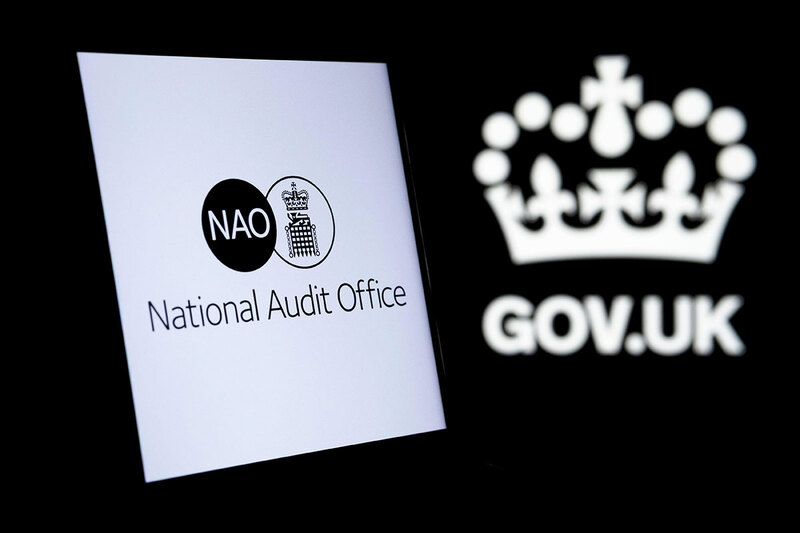98% of homes retrofitted under government scheme have major defects
A major report by the National Audit Office (NAO) has found “widespread quality failings” and possible fraud across a government-backed energy efficiency programme where 98% of homes retrofitted have major defects.

The government is facing criticism over the programme after the NAO investigation found that nearly all homes fitted with external wall insulation and around a third of those with internal wall insulation under the two schemes are faulty.
According to the NAO, 98% of external wall insulation installations (between 22,000 and 23,000 homes) require remediation, with 6% posing immediate health and safety risks, such as damp, mould or inadequate ventilation.
Investigators uncovered systemic failings, weak oversight and suspected fraud across the Energy Company Obligation (ECO) scheme, meaning thousands of homes will have to be repaired.
Gareth Davies, head of the NAO, said: “Clear failures in the design and set-up of ECO and in the consumer protection system have led to poor-quality installations, as well as suspected fraud.
“DESNZ [Department for Energy Security and Net Zero] must now ensure that businesses meet their obligations to repair all affected homes as quickly as possible.”
Among homes with internal wall insulation, 29% were defective and 2% posed serious risks. By September 2025, only a small fraction of these properties had been remediated, 8% externally and 10% internally.
The report warns that remediation costs could range from £5,000 to £18,000 per property for external insulation and £250 to £6,000 for internal work. In the most extreme cases, serious damp and structural damage have cost homeowners more than £250,000 to repair.
The NAO also highlights potential large-scale fraud, estimating that £56-165m in payments may have been wrongly claimed for insulation work that was never properly delivered.
Simon Francis, co-ordinator of the End Fuel Poverty Coalition, said: “The report reveals a system that has let cowboys through the front door, leaving thousands of victims living in misery.
“Sub-standard delivery and weak oversight by the last government has turned what should have been a national success story into a cautionary tale. Now we need to fix the system, not abandon it.”
The report attributes the failings to a “fragmented” governance system involving the DESNZ, Ofgem, certification bodies and energy suppliers, with “no single body clearly accountable” for quality or consumer protection.
The scheme was described as having been designed without a formal fraud risk assessment, leaving the scheme “vulnerable to abuse”. Ofgem’s monitoring relied heavily on data from third parties, while information-sharing between agencies remained patchy.
The DESNZ does not currently track how long remediation takes or maintain a published plan for bringing all affected homes up to standard. The report concludes that “the system as designed was not robust to abuse,” and “in practice, it failed”.
Gavin Smart, chief executive at the Chartered Institute of Housing, said: “A safe, comfortable home is the bedrock for good health, well-being and dignity. However, today’s report exposes systemic failures in the delivery of insulation measures that should make homes warmer and healthier, but have instead led to devastating consequences for some residents and communities, through no fault of their own.
“We welcome the action government has taken thus far to identify and remediate affected homes. The experiences of residents and communities must be at the centre of these efforts, but remediation will only be the first step towards restoring trust and repairing the harm that has been caused.”
The report’s recommendations include giving DESNZ clear “accounting officer” responsibility for overseeing the schemes, publishing a detailed remediation plan and timetable, and producing an annual estimate of fraud and non-compliance.
The findings follow Inside Housing’s earlier reports revealing that the National Housing Federation (NHF) has been in talks with the government over the suspension of several insulation firms linked to poor work, and that an expert panel was appointed earlier this year to review widespread quality failings across retrofit schemes.
Kate Henderson, chief executive at the NHF, said: “It’s disappointing to see that residents have been let down on such a scale by contractors using the ECO scheme. We want to see a swift resolution for all those that have been impacted.
“Housing associations remain committed to decarbonising their residents’ homes and making them comfortable and affordable to heat, working in partnership with the government through its Warm Homes Social Housing Fund.”
The government has said it will apply lessons from ECO to its forthcoming Warm Homes Plan, which aims to improve energy efficiency and reduce fuel poverty.
DESNZ and Ofgem have taken a number of reactive steps since the problems emerged, including commissioning audits, suspending 38 installer businesses (21 of which were later reinstated), and setting up a dedicated helpline for affected households.
However, the NAO says these measures are “reactive and incomplete”, urging DESNZ to set out a clear remediation timetable and assign accountability for funded energy-efficiency schemes.
Martin McCluskey, minister for energy consumers, said: “Today’s report shows unacceptable, systemic failings in the installation of solid wall insulation in these schemes, which have directly affected tens of thousands of families.
“Having inherited a flawed system of oversight and regulation established by the previous government, this government has taken decisive action to protect households and ensure all poor installations of solid wall insulation are fixed at no cost to the consumer.”


